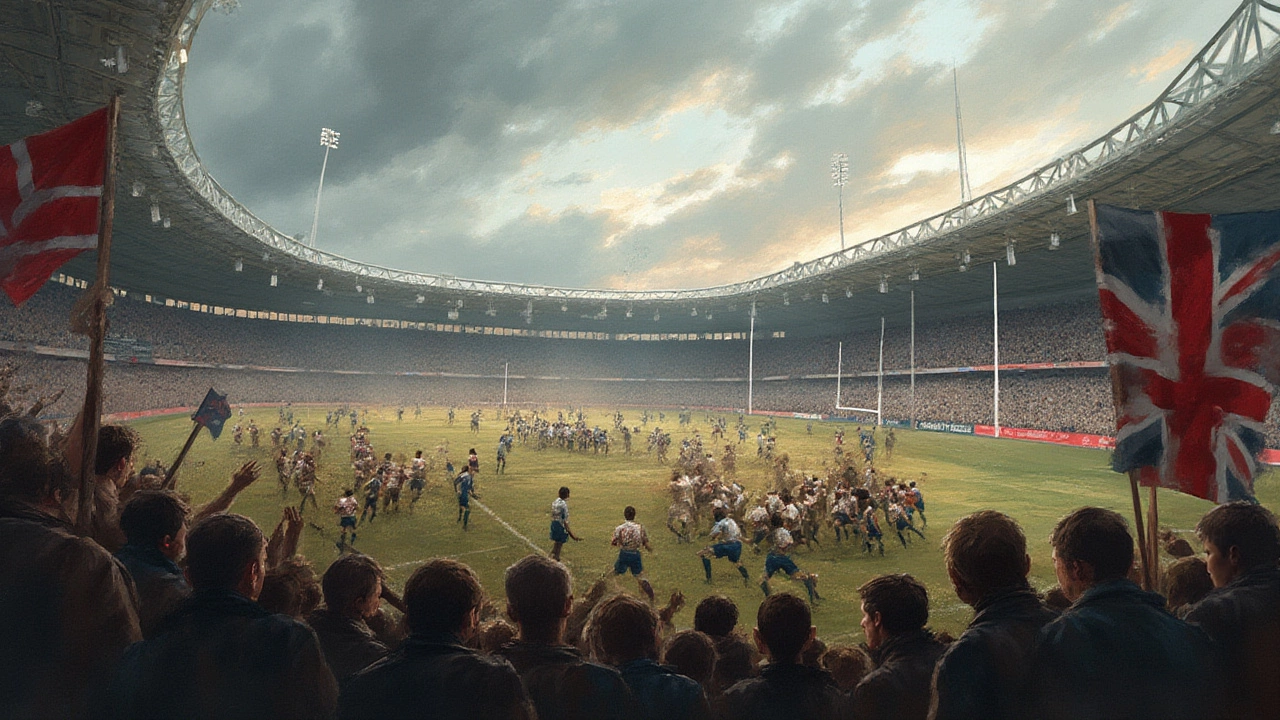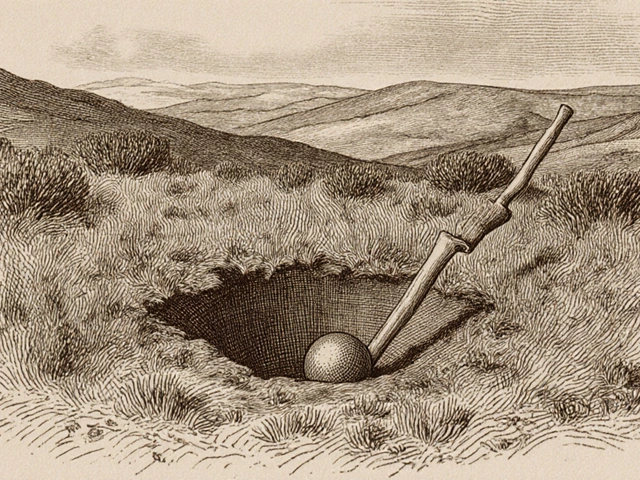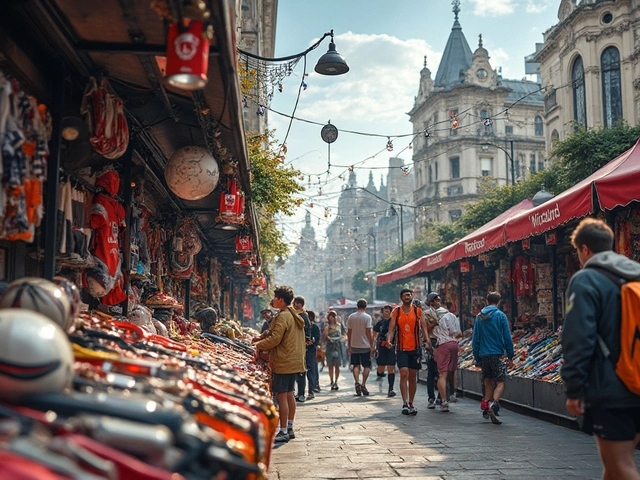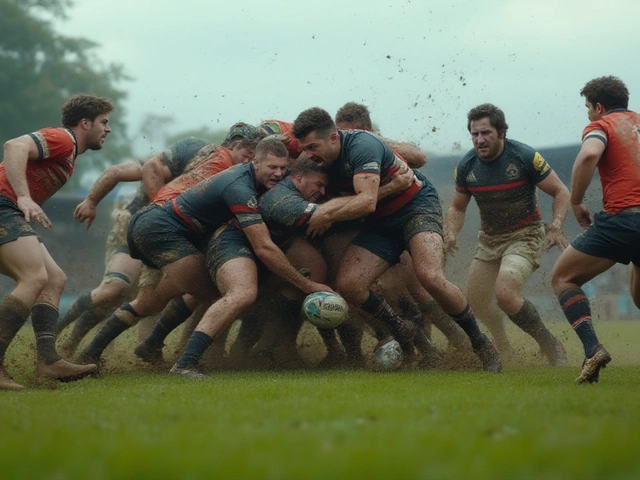Best Rugby Nation of All Time: Comparing New Zealand, South Africa, England and More

Imagine standing in a stadium, the air thick with the roar of thousands. Out on the pitch, history and pride collide with every brutal tackle and dazzling try. The question always lingers in the air: which country truly plays the best rugby the world has ever seen? People fight over this heatedly in bars from Pretoria to Dublin. The answer, like a perfect offload, always sparks fierce debate, but there are some hard facts and unforgettable moments that shape this saga.
The Powerhouses That Shaped Rugby’s DNA
Let’s face it: not every country can brag about rugby glory. Out of more than 100 nations who give the game a try, just a handful have truly defined what world-class rugby means. The conversation always starts with New Zealand—the All Blacks make the black jersey an icon, their haka a spine-chiller. But South Africa, the Springboks, come loaded with their own mythos. England, Australia, France—they've all forged legacies with rugged forwards and backs who dance through defenses. But which nation really commands the world stage in the greatest way?
When you look at pure trophies, New Zealand and South Africa pretty much own the Rugby World Cup. The All Blacks grabbed the gold in 1987, 2011, and 2015. South Africa did the impossible: win after apartheid isolation, then come back even stronger, notching victories in 1995, 2007, 2019, and most recently in 2023. That’s four.
But greatness isn’t just about medals. England, with their 2003 title, are central to rugby’s lore, thanks to Jonny Wilkinson’s nerve-wracking drop goal. Australia has two World Cups under their belt and a knack for innovative running rugby that rewrote the playbook in the ‘90s. France, although never champions, have made three finals—a constant thorn in favorites’ sides—proving that artistry and unpredictability can go toe-to-toe with brute force or relentless structure.
Let’s get real: the best country isn’t just about winning. It’s about fear factor, influence, and the wild way they play. The All Blacks, for instance, set such ridiculous standards with their 77% winning record since 1903. No other team majors in both beauty and numbers quite like they do. Their style—ruthless, fast, never giving you a chance to breathe—made other teams raise their game or pack up and go home.
But if you want proof of mental strength, look at South Africa. The Springboks went from isolation and division to uniting a nation in 1995—a story so epic Hollywood had to turn it into a movie. Then, they did it again. And again. They’re the only nation to win a World Cup every time they’ve reached the final. Talk about clutch.
England and Australia turned rugby global, taking the game to places like Japan and Argentina and making the sport truly international. Their fierce Northern vs. Southern hemisphere clashes set the tone for world rugby rivalries. England’s raw power and discipline forced New Zealand and South Africa to re-think their game at times. Australia’s penchant for unpredictability and slick moves gave us days like the 1999 demolition of France in the World Cup final.
All this raises the question: are stats enough? Maybe not. Maybe it’s the legends, the stories, and the way some countries make your heart beat faster whenever they run out onto the pitch.
Numbers Never Lie—Analyzing Titles, Stats, and Dominance
If you want cold, hard answers, you have to look at data. Here’s how the big guns stack up in the only stat that really matters: winning on the world’s biggest stage. Have a glance at this table showing Rugby World Cup winners and their runner-up finishes:
| Country | World Cup Wins | Finals Reached | Semi-Finals | Winning Percentage (since inception) |
|---|---|---|---|---|
| New Zealand | 3 | 5 | 9 | 77% |
| South Africa | 4 | 4 | 6 | 68% |
| Australia | 2 | 4 | 7 | 62% |
| England | 1 | 4 | 6 | 59% |
| France | 0 | 3 | 8 | 53% |
| Wales | 0 | 0 | 3 | 51% |
| Ireland | 0 | 0 | 2 | 46% |
South Africa has the most World Cup wins, despite missing the first two tournaments. But New Zealand’s consistency is insane. Only once have they failed to reach the World Cup semi-finals. A 77% win rate over more than a hundred years? That’s dominance by anyone’s measure.
A team’s legacy also lives in the Rugby Championship (formerly the Tri-Nations) and the Six Nations. New Zealand basically ran the table for most of the 2010s, while England, Wales, and France played brutal chess matches for Europe’s top spot.
But here’s something wild: France has beaten New Zealand more than any other team in the World Cup knockout stages. Even though they haven’t won a title, ask any Kiwi about 1999 or 2007 and watch them wince. Clearly, lasting greatness and knockout punch can be two different things.
Let’s not forget the Lions tours. Only South Africa, New Zealand, and Australia regularly host the British & Irish Lions—a sign those nations are the ultimate challenge. Victories over touring Lions squads are badges of honor, and again, the Springboks and All Blacks shine brightest. Winning the series is a mark of a truly legendary side.
The Icons and Innovators Who Made Legends
Rugby isn’t just about flags or shirts. It’s about the men who made us believe that the impossible could happen in 80 bruising minutes. Take Richie McCaw. The All Black captain who never seemed to bleed, only inspire. His 148-Test career (131 as captain!) changed how the world saw leadership. Dan Carter? He made tactical kicking cool and led New Zealand to glory twice.
South Africa had Francois Pienaar—the captain who met Nelson Mandela on the field in 1995—and more recently, Siya Kolisi, the first black skipper to lift the World Cup. Those moments meant more than points on a board; they showed rugby as a force for unity and hope. How about Bryan Habana, whose speed electrified crowds and whose tries brought South Africa home in 2007?
Australia gave us John Eales, known as "Nobody" because nobody did it better. A lock who could kick goals? That hardly seems fair. England's 2003 team with Martin Johnson and Jonny Wilkinson embodied guts and resolve, while French magic came in the form of Serge Blanco and, later, the elusive, jazz-like game of Fabien Galthié and Antoine Dupont.
All these legends rewrote the script, from the All Blacks inventing offloading before it was a buzzword, to South Africa’s blitz defense that now all top teams try to mimic. Who can forget Jonah Lomu thundering past England in 1995? Or France’s Philippe Sella gliding through tackles in the ‘80s? These players and their teams pushed boundaries, setting trends that defined whole decades of rugby.
You want a tip? Watch highlight reels from Lomu, or Kolisi’s post-match interviews about what it means to lead a new South Africa. To understand rugby’s best, you need faces, voices, and stories—not just numbers.
Rivalries, Drama, and Defining Moments
The best rugby nation isn’t built in a vacuum. Rivalries are half the fun—and sometimes, the heartbreak. The All Blacks vs. Springboks is fierce: from apartheid-era bans to epic finals, their showdowns have shaped world rugby. The 2015 World Cup semi-final was pure warfare, decided by just two points.
Then you’ve got the Ashes-like rivalry between England and Australia. The 2003 World Cup final at Sydney remains etched into English and Australian minds, thanks to Wilkinson’s boot. Northern and Southern hemisphere fights bring two rugby cultures to a boiling point every World Cup, with different ideas about how the game should even be played.
Who doesn’t love a good underdog? France infamously dumped New Zealand out twice. Japan shocked the rugby planet in 2015, beating the Springboks in what’s now called the “Brighton Miracle.” Ireland have regularly sunk world No. 1s (including the All Blacks) since 2016 but keep tripping at quarter-finals. Yet, they win everyone’s affection for pure bloody-mindedness.
The drama lies not just in the scores, but in the stories—the Springboks lifting the cup in Johannesburg with Mandela, New Zealand winning at home after a 24-year drought, or England’s pain and grit in close losses and their solitary win. Every country writes its own epic, but these head-to-heads and plot twists make fans take sides for life.
If you’re new to rugby, pick a classic rivalry and watch a few games. The animosity, skill, and sheer will can turn anyone into a convert.

Beyond the Numbers: Spirit, Impact, and Why It Matters
Stats are great, trophies are shiny, but real greatness runs deeper. Take the All Blacks’ culture: humility, relentless drive, and a belief in the jersey. It’s why kids all over the world try to copy the haka before backyard matches. For many, New Zealand is the greatest, not just because they win, but because they play a brand of rugby that’s instantly recognizable: aggressive, swift, and stylish.
South Africa’s impact goes far beyond the field. Their 1995 victory wasn’t just for rugby geeks—it was for a country healing from years of division. Whenever the Springboks win, it feels like it means something bigger. Their story turned rugby into a national obsession and a tool for real change.
England, France, Australia—they bring color, conflict, and fresh approaches. England’s die-hard fans travel by the thousands, never losing faith. Australian rugby has bridged sports, with stars often excelling in other codes. France injects wild, artistic rugby that defies prediction—a reminder that the best teams don’t have to look the same.
When you add up the numbers, soul, and stories, you start seeing why rugby fans never agree on the "best." For some, it’s the All Blacks for their style and pure dominance. For others, it's South Africa for what winning means to a country. And there are arguments everywhere in between.
So, which country has the best rugby of all time? Statistically, New Zealand and South Africa rule. But real rugby greatness is about leaving a mark on the world—on the field, in people’s lives, and in the stories we tell long after the final whistle.




